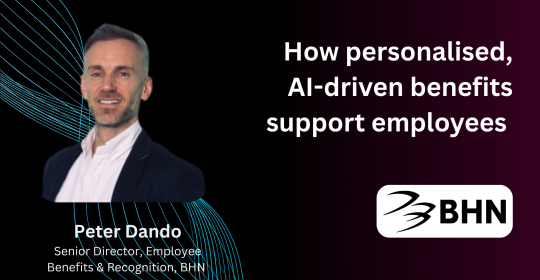Before the Covid pandemic, companies typically completed Right to Work checks for new recruits by meeting them in person and seeing physical copies of their passports. During lockdown, the government adjusted the way Right to Work checks could be conducted - with identity documents provided digitally and checked via video call - a system that became incredibly popular with employers. This temporary solution of video calls will come to an end on the 1st October.
With the start of next month fast approaching, there is bound to be a last minute scramble as HR teams get their house in order and find an alternative way to complete Right to Work checks. And it’s important that they do; with employers facing a fine of up to £20,000 for each employee if they are found to be working in the UK illegally.
The good news is that they won’t have to go back to checking identity documents in person. Under new legislation for Right to Work, introduced in April this year, the government now allows employers to use the services of a trusted and secure certified Identity Service Provider (IDSP) to complete identity verification checks. The aim is to enable a more efficient and secure way of proving identity. The move has been welcomed by many; with the recruitment industry and employers enjoying the flexibility digital checks allow at scale.
What do the changes mean?
The new guidance allows companies to harness the power of digital identity for Right to Work checks, for UK and Irish citizens.
The changes allow individuals to prove their right to work quickly and easily online or via a digital ID app (such as the Post Office’s EasyID). This is especially useful for temporary workers or contractors who need to prove their right to work regularly. They will soon be able to complete these checks in person at a Post Office branch too.
According to Post Office Hot Topics data, nearly half (46%) of people do not feel comfortable with businesses taking a photocopy of their ID. So these digital checks are not only safer for individuals - as they do not need to present physical documents - but they can also offer a more streamlined onboarding process, resulting in a better candidate experience. These digital checks also enable a wider pool of applicants to apply for roles and reduce geographic barriers to employment - as they can prove their identity from the comfort of their home.
For employers, they can benefit from increased efficiency, getting people into jobs faster and reduced recruitment times. With the British Chamber of Commerce warning of record recruitment problems with three out of four companies struggling to hire staff, these digital policies should be music to recruiters’ ears.
The risk of human error is also vastly decreased. Having HR teams manually check an ID document in person doesn’t guarantee accuracy every time - after all, it’s not their job to be fraud experts and determining the authenticity of an ID document can be an intense process. Digital identity checks offer a higher level of security, relieves the pressure on HR teams to accurately check the document, and stops employers from handling and storing a mountain of sensitive paperwork and information.
It’s time to embrace digital Right to Work checks
These solutions are not years away - they have already arrived and a number of companies are already on board with these remote policies, with First Advantage, Verifile, Talent Clouds and PeopleCheck all completing digital Right to Work checks through the UK’s first certified IDSP - Yoti and Post Office.
For any company still relying on the temporary solution of video calls, they would be wise to quickly consider how they can benefit from these new digital checks. No-one can risk falling behind these days - or give an edge to a competitor.






